Why HBO should save ‘Tokyo Vice’ from the chopping block
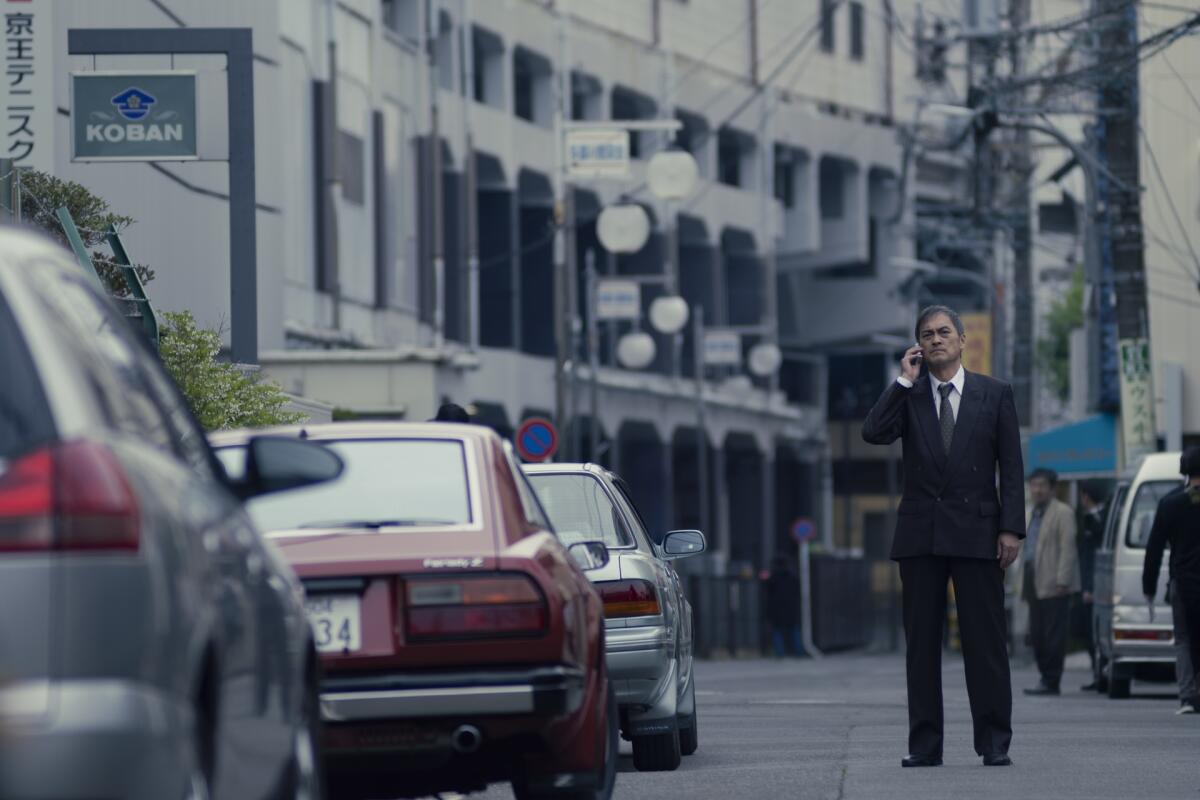
- Share via
Welcome to Screen Gab, the newsletter for everyone hankering for the next great HBO drama.
It may already have come and gone: With Thursday’s finale, another season of underworld drama “Tokyo Vice” has passed without fanfare, and it’s not inconceivable that the network will decline to renew the series for Season 3. That would be a shame, Screen Gab‘s editor writes in this week’s edition, explaining why it’s likely to get even better with age.
Also in this issue, a visit with the directors of new documentary “Food, Inc. 2” and two streaming recommendations for your weekend. Read on!
You are reading Screen Gab newsletter
Sign up to get recommendations for the TV shows and streaming movies you can’t miss, plus exclusive interviews with the talent behind your favorite titles, in your inbox every Friday
You may occasionally receive promotional content from the Los Angeles Times.
ICYMI
Must-read stories you might have missed
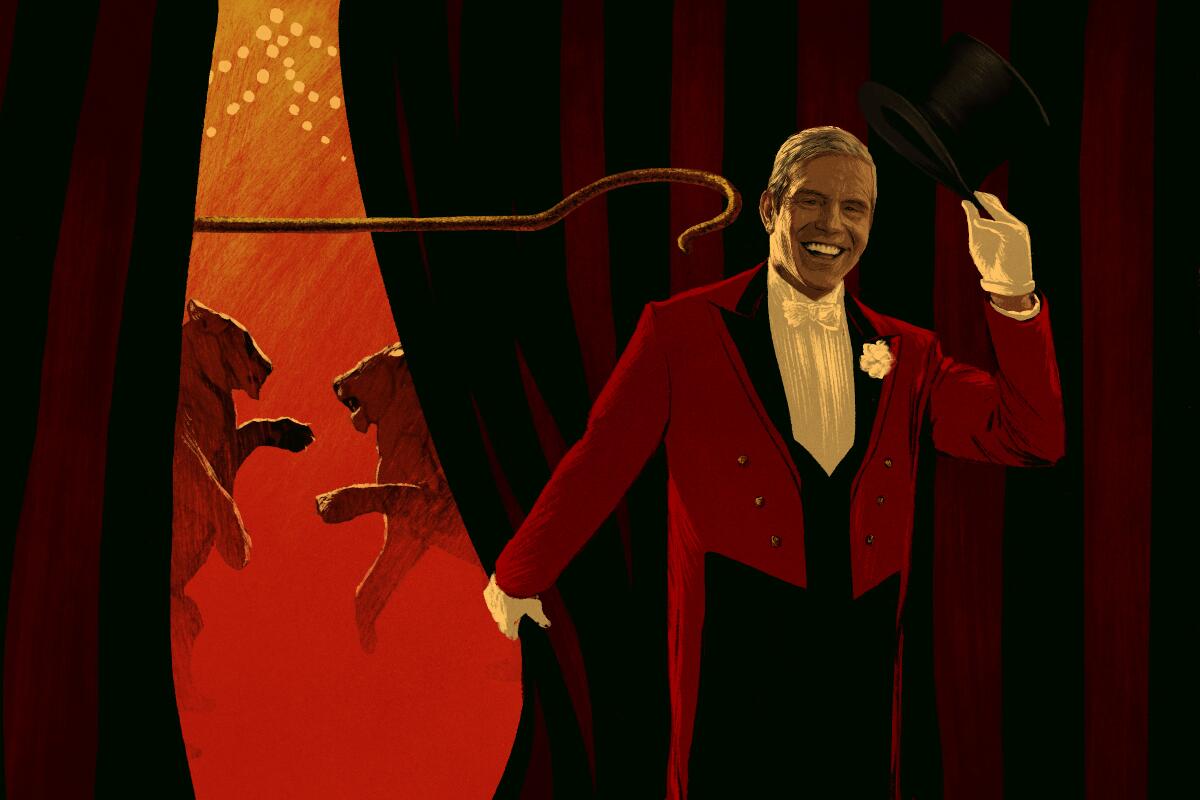
Andy Cohen turned Bravo into a cable powerhouse. Now the ‘king of reality TV’ faces his own drama: Bravo and the producers of shows such as “Real Housewives” face a slew of allegations and lawsuits claiming bullying, harassment and unfair labor practices.
Giancarlo Esposito knows how to play the villain. In ‘Parish,’ he steps into the antihero role: Esposito became renowned for his supporting roles, most notably in “Breaking Bad.” Now he’s the star of “Parish,” a passion project that is personal to him.
No longer a side character, ‘Elsbeth’ comes into focus. But don’t call it a spinoff: The CBS series is centered on a character from the “Good Wife” universe, but the shows’ creators say the similarities end there.
Andrew Scott and Dakota Fanning say their ‘Ripley’ characters aren’t rivals, ‘they’re frenemies’: The stars of Netflix’s new adaptation of the Patricia Highsmith novel talk about why we can’t get enough of con artists, how they’ve been duped and all those stairs in the show.
Turn on
Recommendations from the film and TV experts at The Times
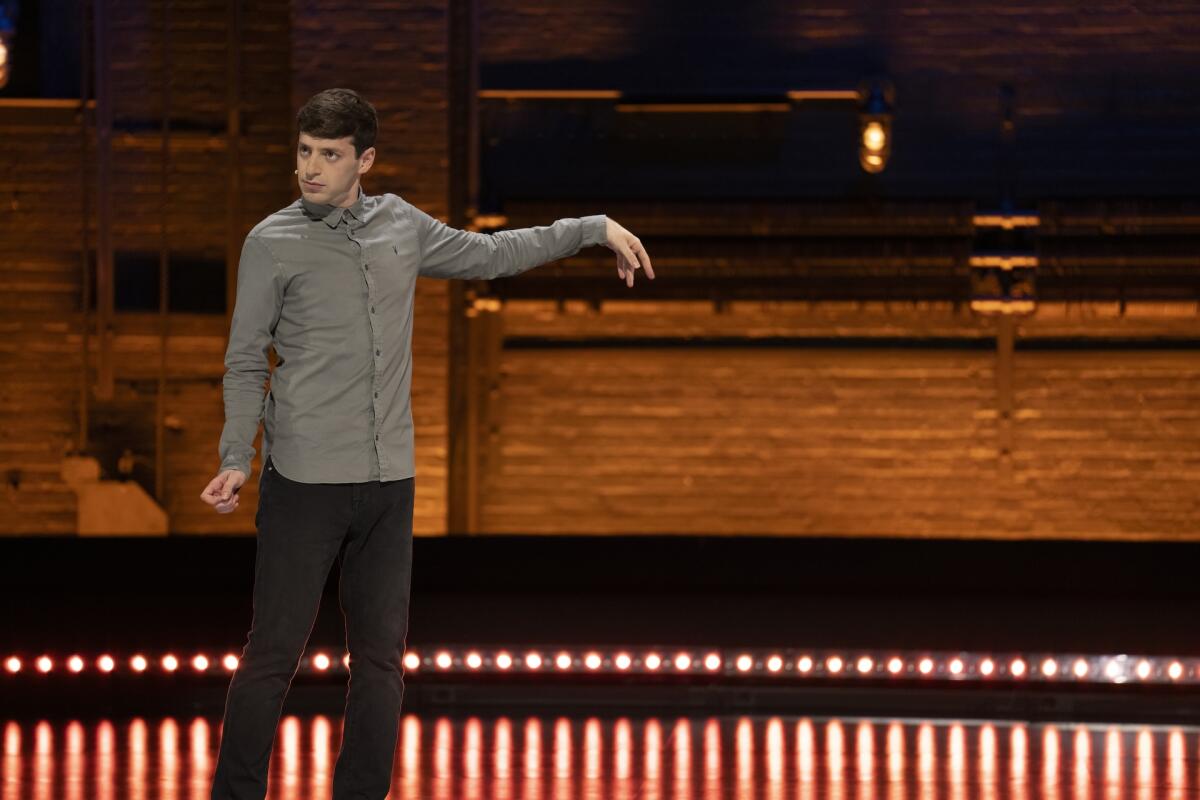
“Alex Edelman: Just For Us” (Max)
While watching Alex Edelman perform live in Los Angeles last year, I thought to myself numerous times, “I hope this show gets filmed, because I want to share it with everyone I know.” Thankfully, after hit runs on Broadway and elsewhere, “Just For Us” is available to stream. Throughout the incisive 90-minute set, the comedian shares his experience attending a meeting of white nationalists in New York City, while weaving in brilliant bits about the time his Orthodox Jewish family celebrated Christmas and tough questions about identity, assimilation and empathy. I laughed, cried and cried laughing in that theater, and can’t wait to do so again from home alongside loved ones. —Ashley Lee
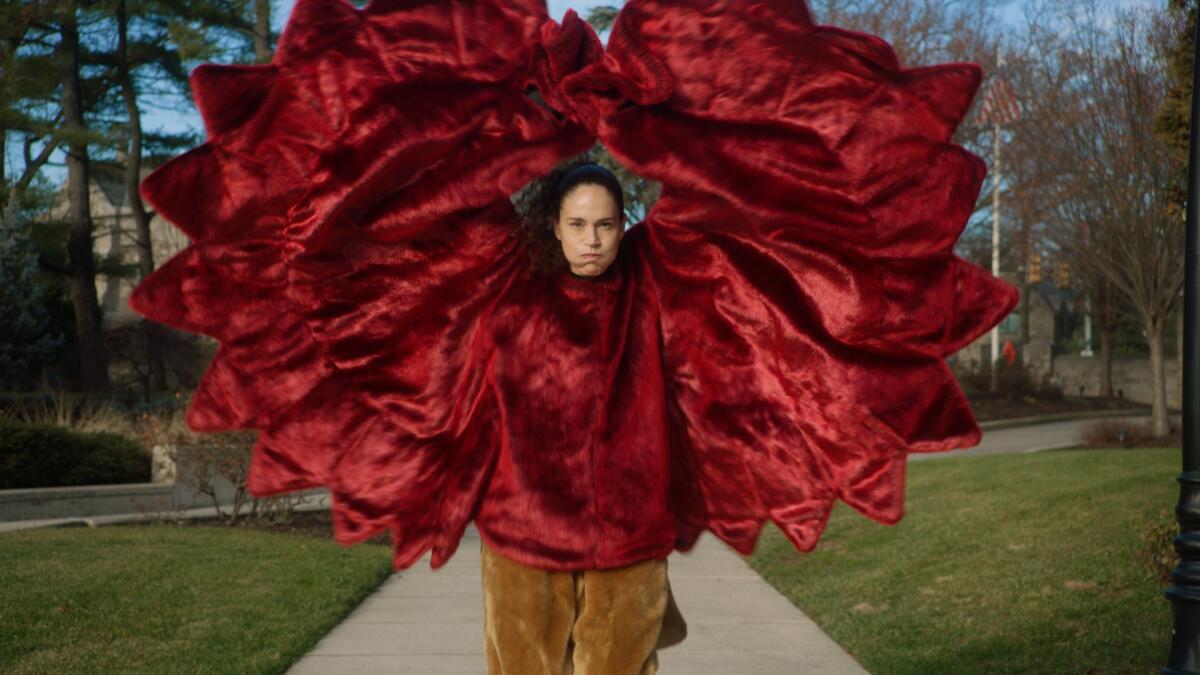
“Sue’s Places” (ESPN+)
The most exciting television in recent weeks has been the NCAA women’s basketball tournament, hands down, so tuning in to the remaining games on Friday (4 p.m. and 6:30 p.m., ESPN) and Sunday (noon, ABC) should be top priority. Those looking for streaming options between these games — as well as anybody curious about college basketball in general — should consider checking out “Sue’s Places.” Each episode of the ESPN+ series sees basketball great Sue Bird, a two-time NCAA champion, dig into the stories behind various college basketball lore and traditions. Bird fondly describes the series as “kind of ridiculous and gimmicky and shticky” but “you’re probably gonna get a fun fact you didn’t know.” Each episode also features former and current basketball stars as well as famous superfans dishing assists to the former point guard in her explorations. —Tracy Brown
Catch up
Everything you need to know about the film or TV series everyone’s talking about
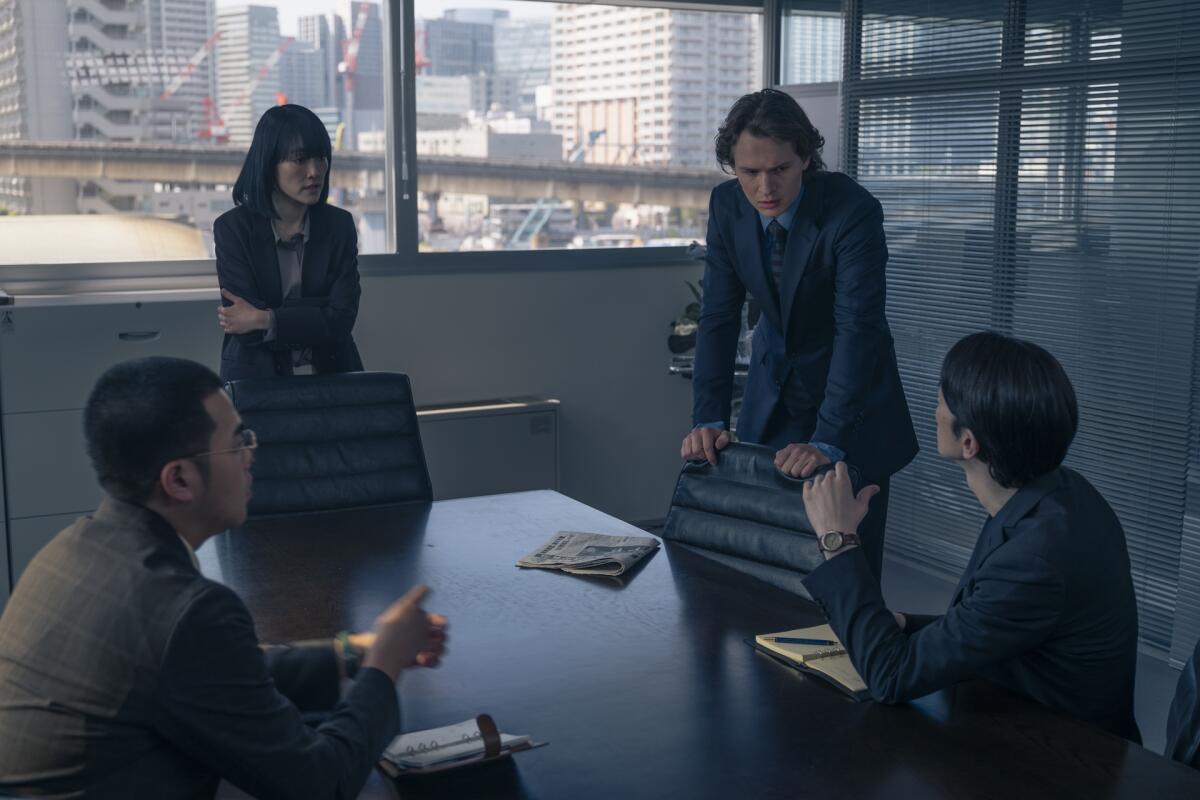
After two seasons languishing in relative obscurity, at least in the corners of the internet where its more popular brethren (“Succession,” “House of the Dragon,” “True Detective”) have been discussed and dissected ad infinitum, “Tokyo Vice” (HBO, Max) seems unlikely to be granted a third. Whether it deserves one, particularly for its creative merits, is another matter. Having long since abandoned hotshot reporter Jake Adelstein (Ansel Elgort) as its sole protagonist, the series has blossomed instead into a rip-roaring ensemble drama set against the yakuza’s reluctant modernization — and the pressure it places on the state and the press to adapt in their own right.
As Adelstein, the only American ever hired by Japan’s flagship daily, and Hiroto Katagiri (Ken Watanabe), an organized crime detective with the Metropolitan Police, find themselves drawn deeper into the city’s underworld after a dangerous scrape in Season 1, each episode of Season 2, which concluded Thursday, widens our keyhole into the characters’ lives. Jake’s editor, Emi (Rinko Kikuchi), leans on her lover as she cares for her mentally ill younger brother and suspects a mole at work; rank-and-file yakuza operative Akiro Sato (Show Kasamatsu) finds himself thrust unexpectedly near to power within the organization; American expatriate hostess Samantha Porter (Rachel Keller) comes to understand the price of striking out on her own. The result — rife with tension, peppered with humor, rendering Tokyo with the same lived-in detail as David Simon’s Baltimore — is as sprawling as a soap opera, and as effective: Each character, major and minor, successfully charts their own compelling course, all while remaining effortlessly, invisibly connected. When their paths cross, often in sudden bursts of violence, a yakuza boss’ backhanded compliment to Samantha (“You will do well in this world”) becomes bloodily literal: “Tokyo Vice” doesn’t simply take place in but actively crafts an immersive universe unto itself. HBO would do well to take a risk on saving it. It’ll only get better with age. —Matt Brennan
Guest spot
A weekly chat with actors, writers, directors and more about what they’re working on — and what they’re watching

More than a decade after the Oscar-nominated 2009 documentary “Food, Inc.” (Peacock) brought the ideas behind “Fast Food Nation” and “The Omnivore’s Dilemma” to movie screens — and so helped bring about a sea change in the way Americans talk about what they eat — narrator/authors Eric Schlosser and Michael Pollan, now producers, are still on the case. Directed by Robert Kenner and Melissa Robledo, “Food, Inc. 2,” in select theaters Friday and on VOD April 12, returns to the deleterious effects our industrialized food system has on our environment, our bodies and more, this time with particular ire for political stasis and corporate foot-dragging. Kenner and Robledo stopped by Screen Gab recently to discuss what has and hasn’t changed in the last 15 years, what they’re watching, and more. —Matt Brennan
What have you watched recently that you are recommending to everyone you know?
Melissa Robledo: “The Bear” [Hulu] — I loved it. Exceptional craft across the series and a glimpse into some of the enduring challenges in the restaurant industry. We’ve seen some important changes for food workers, but more reforms are urgently needed.
What is your go-to “comfort watch,” movie or TV show you go back to again and again?
Robert Kenner: “Curb Your Enthusiasm” [HBO, Max], because we all need some levity.
What’s one problem with our food system that’s been improved, if not wholly solved, since the first “Food, Inc.?”
Kenner: We continue to see a raised consciousness — people shopping with their values, demanding better food and a better food system. There’s been a proliferation of farmers markets and there’s a greater awareness of the impacts our food system has on the climate.
And what’s a problem that didn’t exist then or hadn’t really broken through that now needs our attention?
Robeldo: Ultra-processed foods. Over the last decade there have been hundreds of studies on the impacts of ultra-processed foods on our health — a recent meta-analysis in the BMJ [journal of the British Medical Assn.] found that diets high in U.P. foods are directly associated with Type 2 diabetes, cardiovascular disease, depression, anxiety, sleep problems and early death. Our film features a [National Institutes of Health] study which demonstrates that eating ultra- processed foods encourages people to eat more calories than they otherwise would — 500 calories a day on average.
Kenner: We need front-of-package warning labels, but we are sure to see food companies fight those efforts.
The complete guide to home viewing
Get Screen Gab for everything about the TV shows and streaming movies everyone’s talking about.
You may occasionally receive promotional content from the Los Angeles Times.



